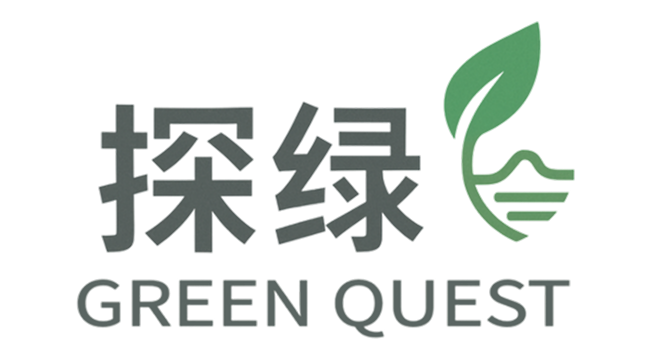

Policy Exchange Bangladesh
“The US oil and gas lobby is extremely powerful. We may be hoping for 20 percent, but we may end up at 35 percent or even 40 percent. With Trump as the final decision-maker, anything is possible.”

"Developing nations can counter U.S. economic coercion and amplify their influence in international economic governance with solidarity, and India-China coordination is crucial. When these giants speak as one, the world will indeed listen."
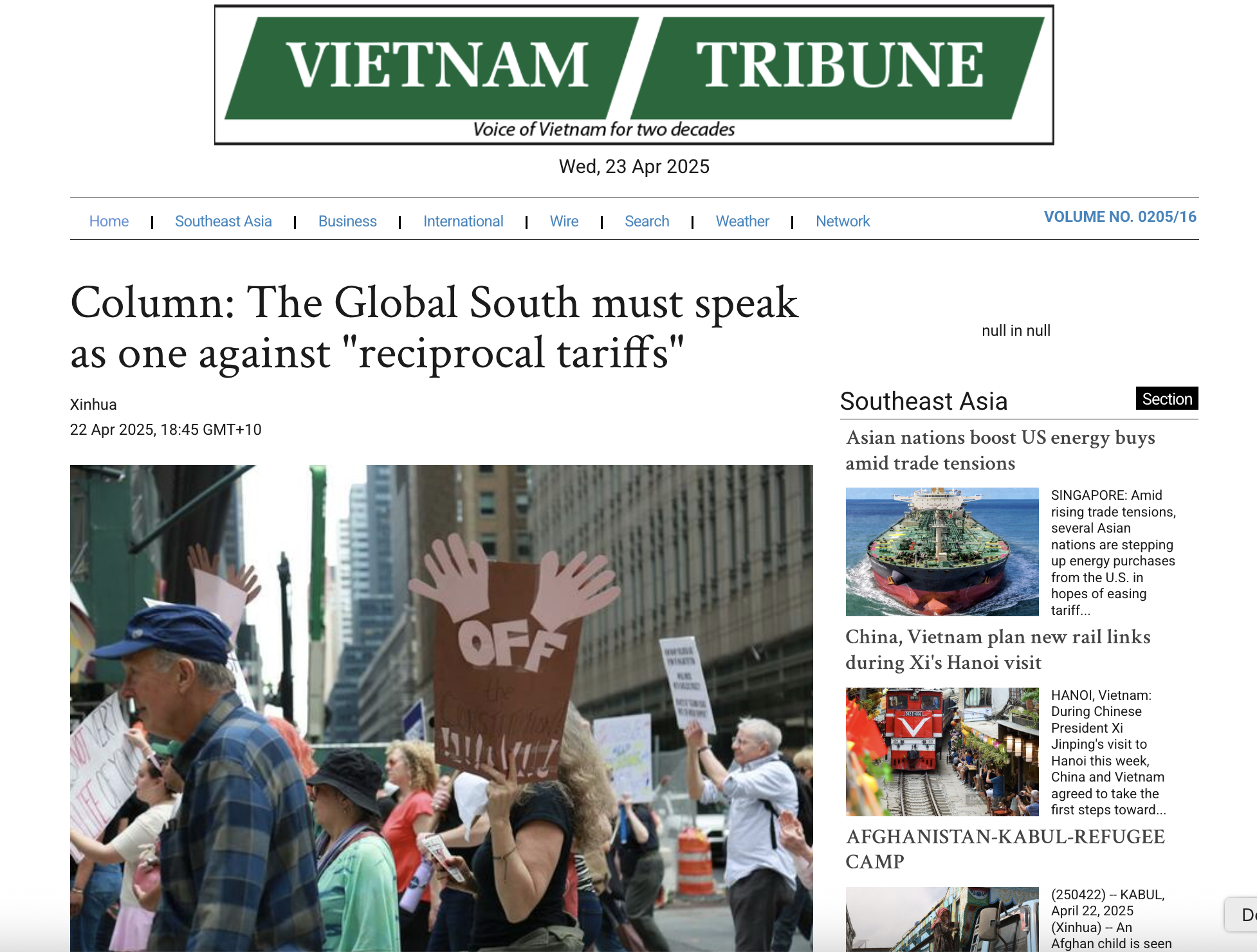
“…slashing tariffs on Thai exports from 36% to 19%—offers a timely lifeline to the economy, boosting export competitiveness and attracting investment in strategic sectors like clean energy and semiconductors. In exchange, Thailand will grant extensive concessions, from tariff-free access for over 10,000 US goods… it also leaves small businesses and farmers exposed to intensified competition and underscores deeper economic vulnerabilities.”
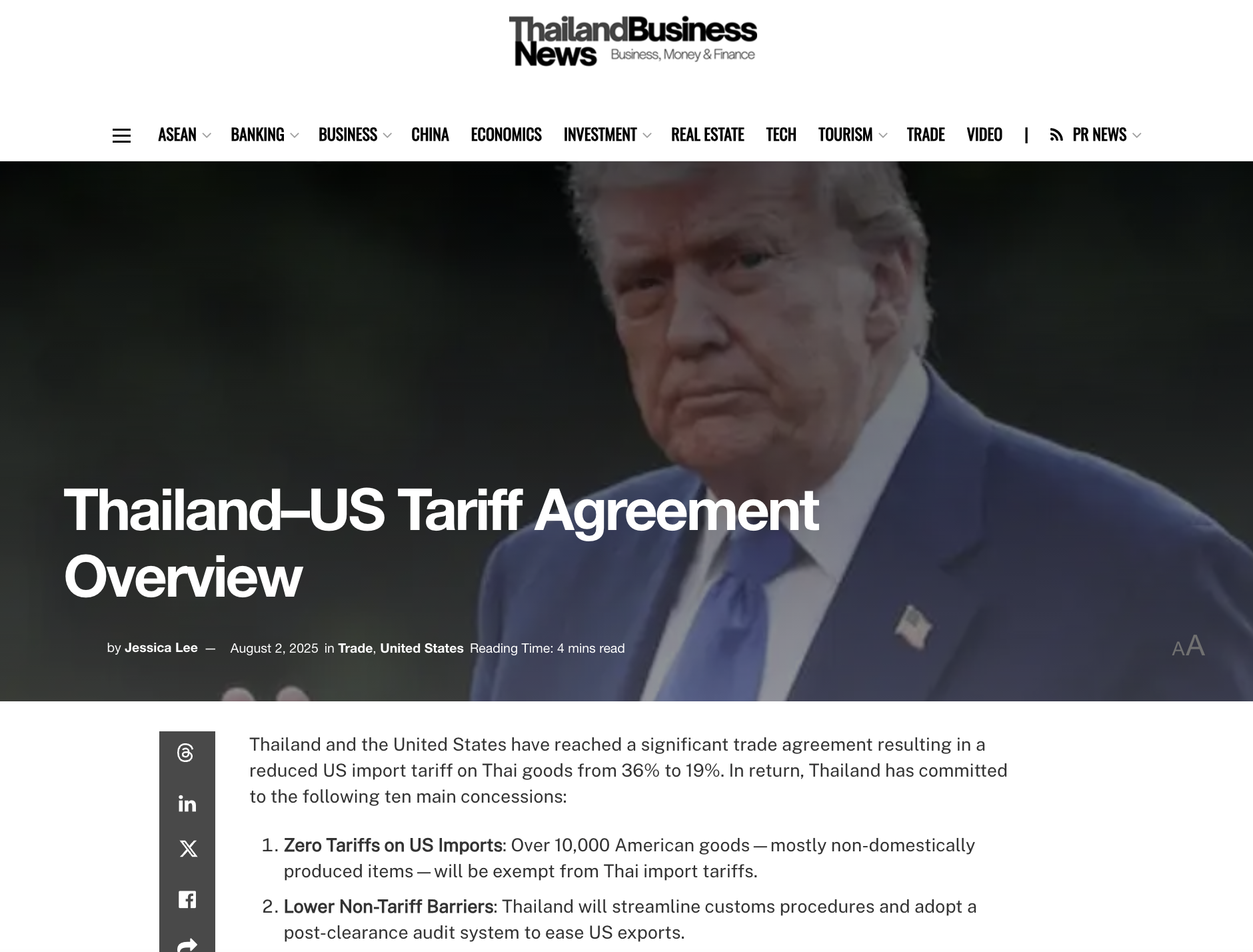
“The Philippine government should seize this moment to double down on its commitment to clean energy by supporting the localization of supply chains – not to replace global trade, but to reduce our exposure to it. Public funding and incentives can help establish local assembly and testing of core clean energy technologies, from solar modules to battery systems.”
"The Philippines must engage more deeply in regional cooperation on climate and clean energy. While we can’t control tariff decisions made in Washington, we can work with ASEAN partners to build resilient, coordinated clean energy markets that are less vulnerable to unilateral disruption."
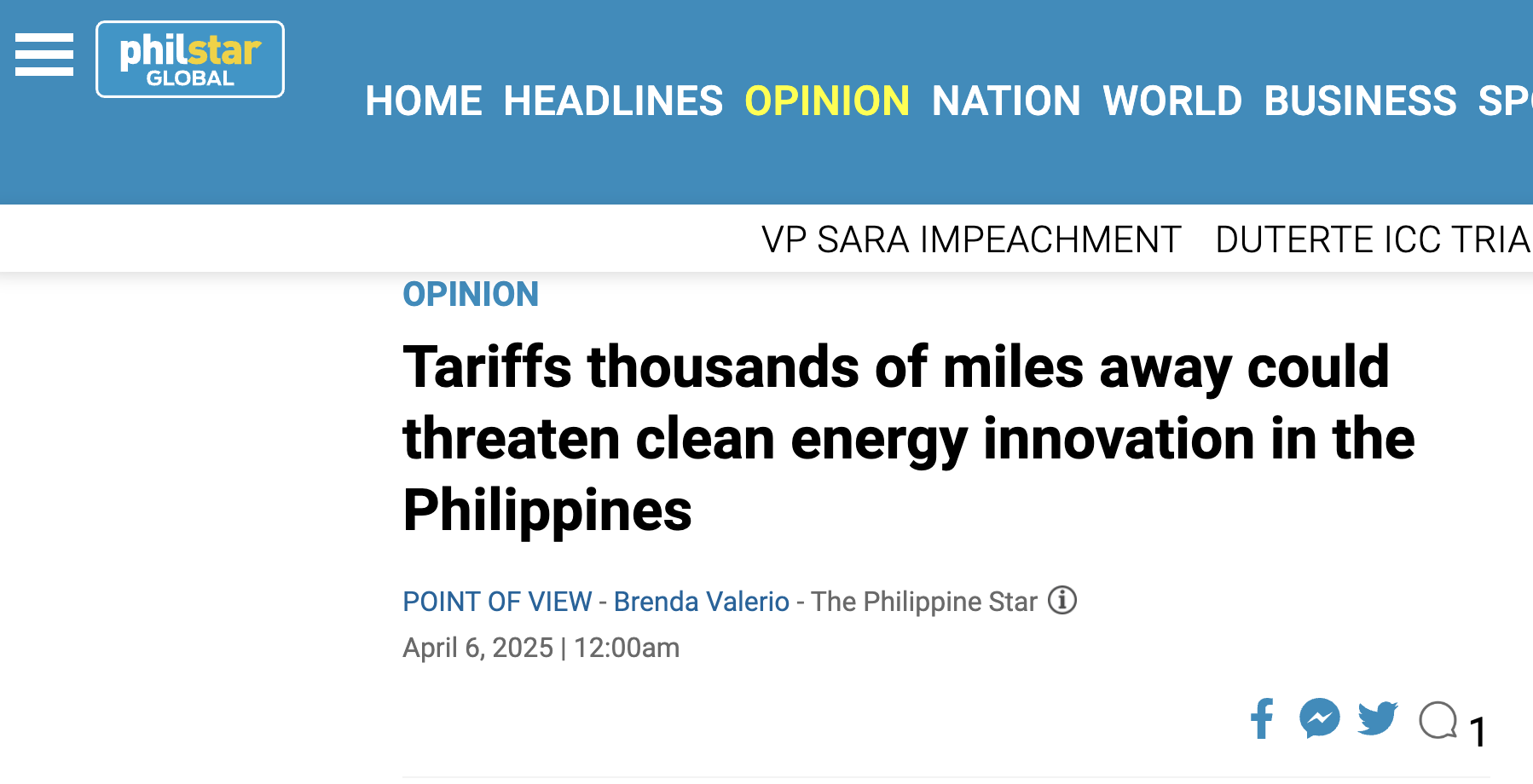
Across Latin America and other emerging regions, the rush toward decarbonization has outpaced the development of enabling infrastructure and regulatory clarity. Countries with enormous renewable potential, such as Mexico, are still in the process of incentivizing storage, flexible demand, and resilient grid integration. What's missing is not technology, its alignment between policymakers, regulators, investors, and system operators.
Mexico's current administration has stated its willingness to invest in renewable energy — CFE's expansion plan published in February proves that. However, if the investment in transmission and distribution infrastructure does not accelerate, the penetration of these kinds of technologies will be limited, and the government's goals will be impossible to reach.
What happened in the Iberian Peninsula is a strong lesson for Mexico in its energy transition lessons. Let us not waste this moment by assigning blame to the tools critical to our climate goals.
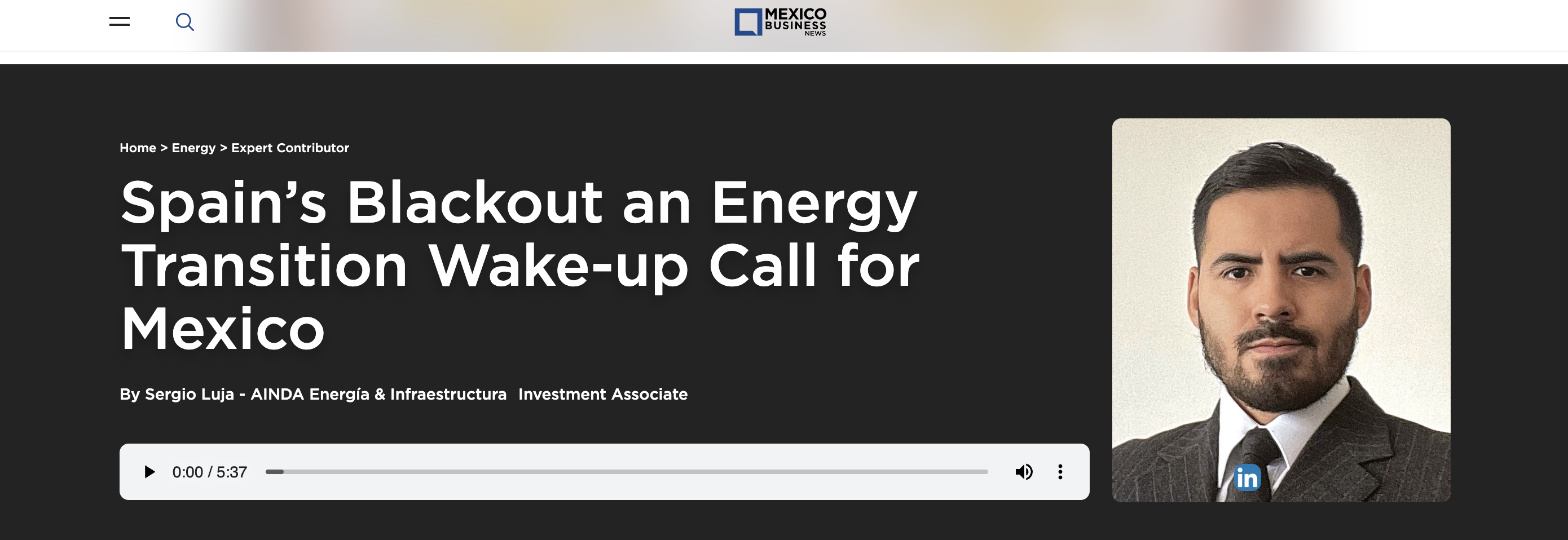
South Africa should take the "Chinese approach" and know what leverage it can use against the US. "We should take the Chinese approach, know what our leverage is. In this case, the president was very aware that critical minerals would be our leverage, the thriving 600 US companies in South Africa is our leverage, the 20 South African companies that employ US citizens in the United States can be our leverage. "China has taught us to know your leverage, act on the leverage and then absorb the punishment and stay out of unnecessary discussions with the United States," Rasool said.
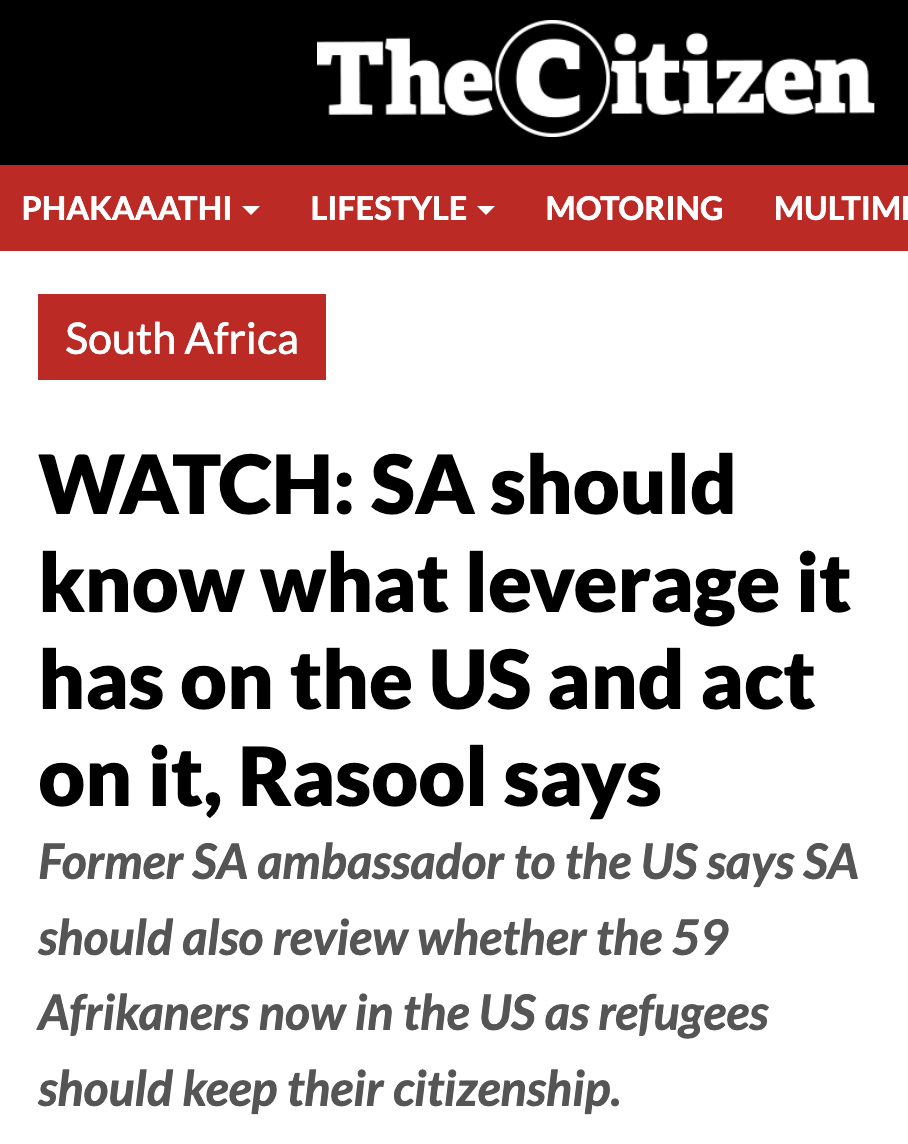
"Unlike Western aid models that often come with strict conditions and policy prescriptions, China offers an alternative approach based on mutual respect and non-interference. This provides Bangladesh with the flexibility to align its development trajectory with national priorities."
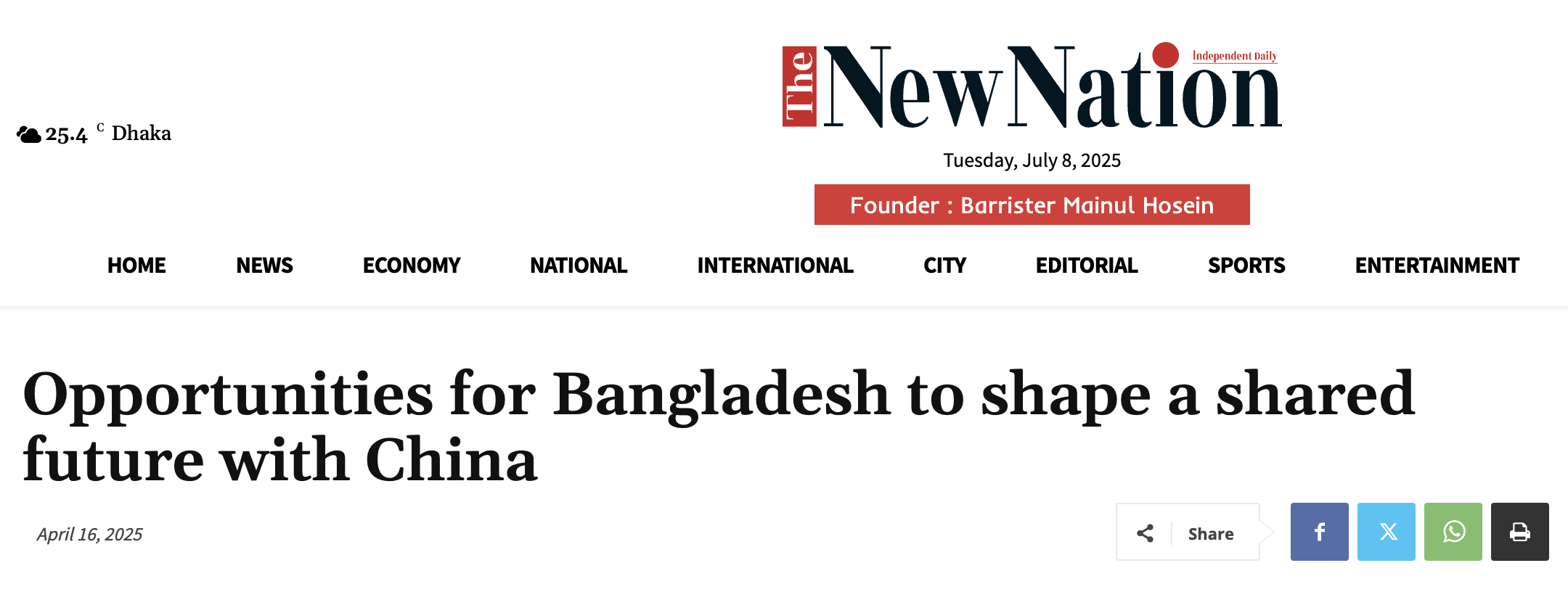
“To a large extent, the success or failure of Indonesia’s nickel downstream policy will be judged by whether or not it leads to more high-value manufacturing. If it doesn’t help Indonesia gain more battery manufacturing, it will be hard to call it a success.”
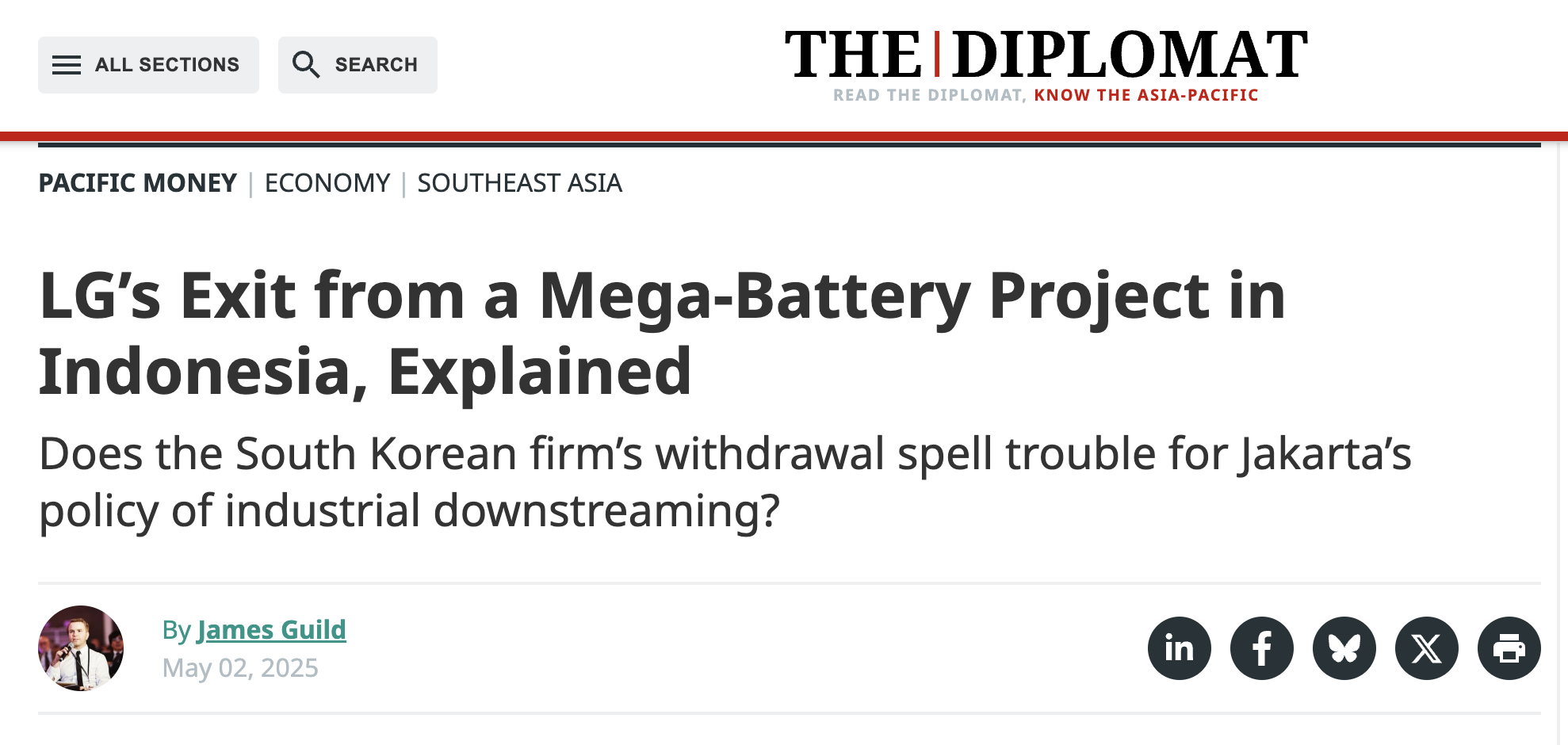
General Manager of Sustainability, Energy Partners
“The withdrawal of US funding from the JET partnership reinforces what should have been clear from the outset: businesses must drive their own sustainability strategies, independent of fluctuating political agendas.”
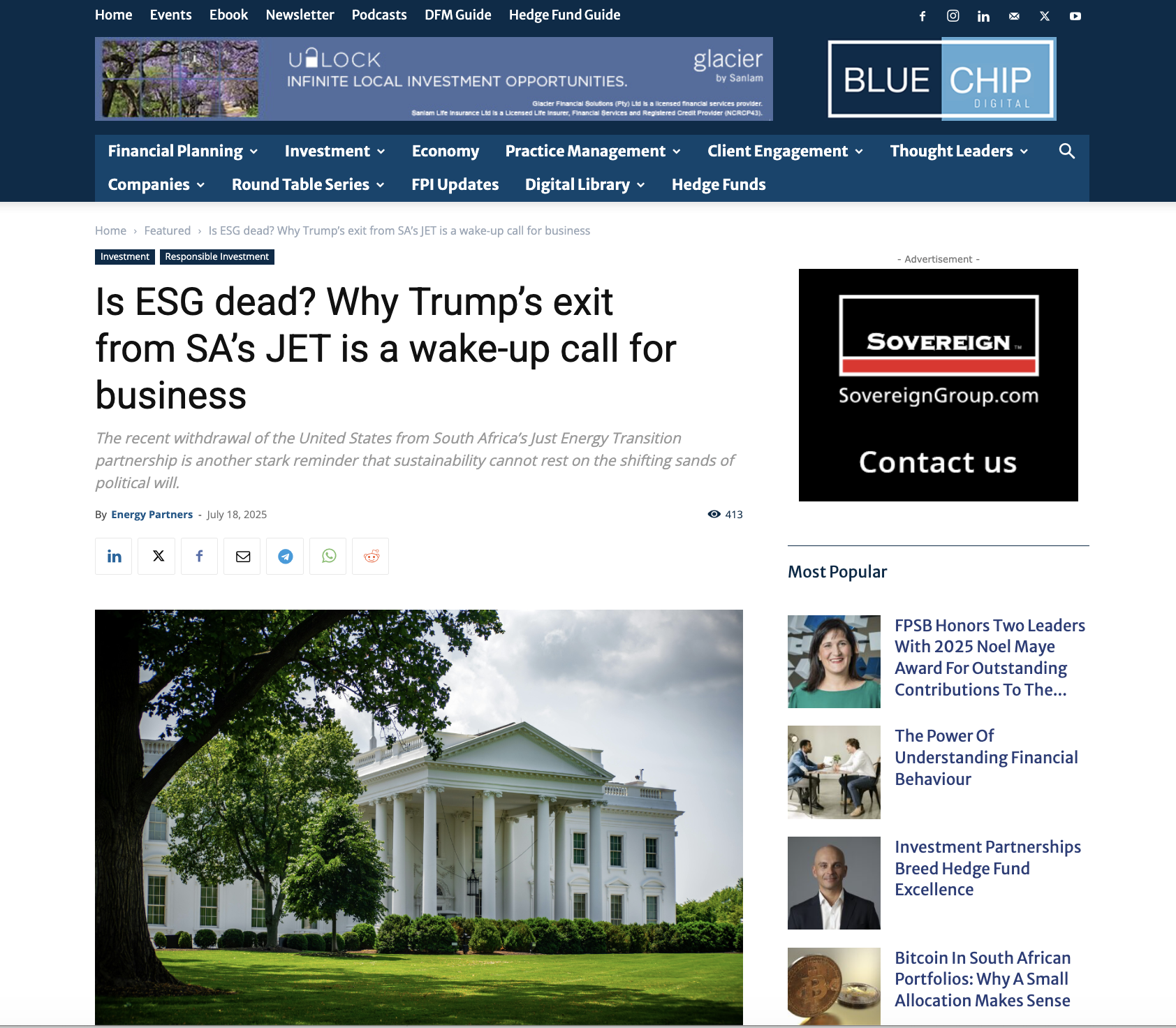
Energy Shift Institute, think tank
“If a US company takes four years to do a feasibility study, Chinese companies will already have invested by then.”

Research and Policy Integration for Development (RAPID)
cautioning against rushing into Trump’s LNG trade deals: “The [Bangladesh] government had limited room for a reciprocal negotiation — it’s more complex than just tariffs.”

"With the public debt rate expected to be controlled below 38 per cent by the end of 2024, Vietnam’s fiscal landscape can add external financial sources for low-carbon economic development, making it more favourable for businesses to access green credit from domestic commercial banks and international financial institutions."
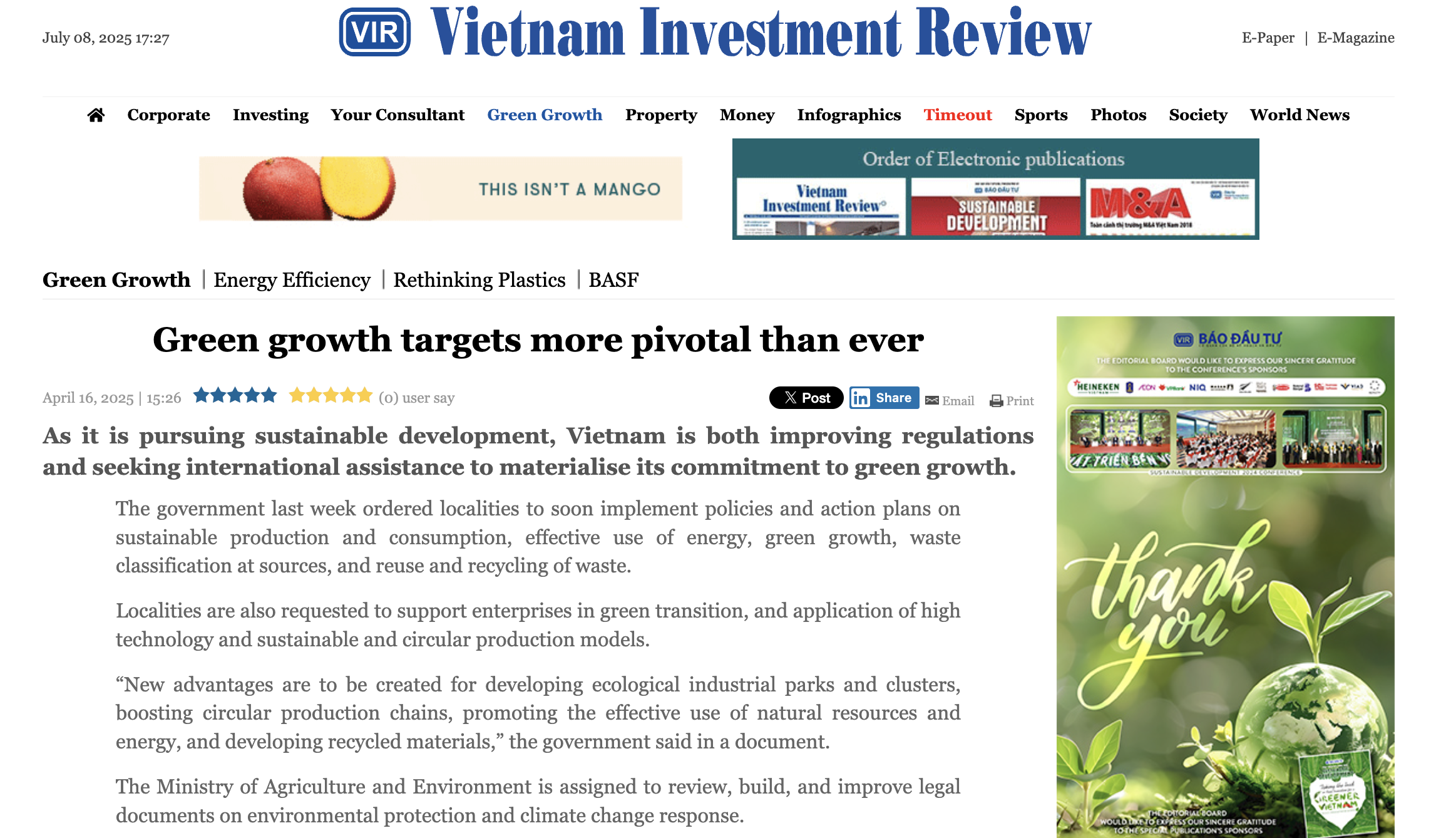
“Mr Trump's letter shows that Thailand's offerings – such as promises to import LNG for two decades and purchase Boeing commercial planes and weapons – were not attractive enough for Washington.”
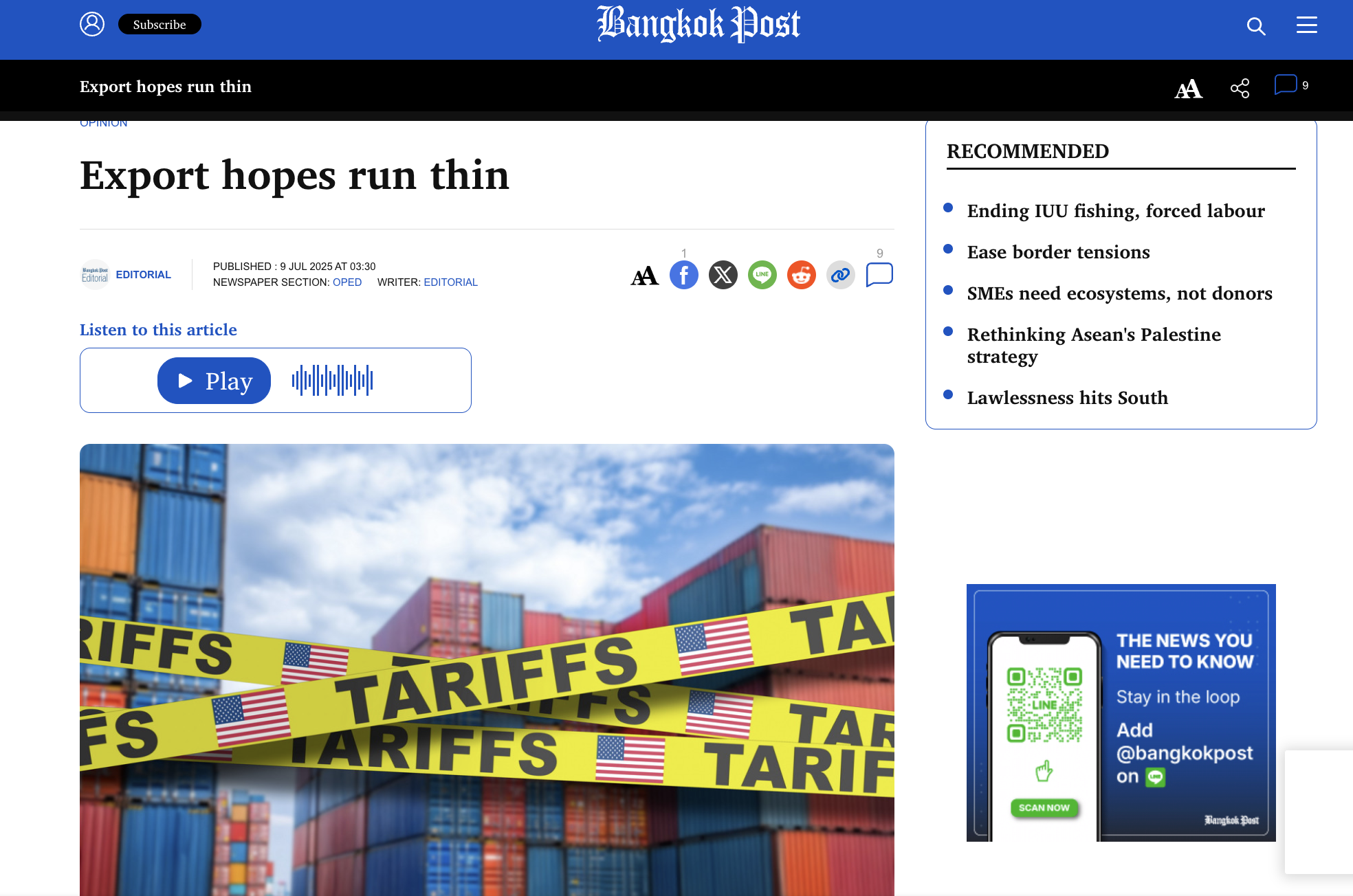
Senior economist at the Institute for Development of Economics and Finance, Economic Think Tank
The form of Indonesia–China diplomacy will increasingly focus on future business aspects, including electric vehicles and digital technology… If there is no technology transfer between the two countries, and Indonesia only receives manufacturing without understanding electric vehicle design, battery technology, and so on, then we will always be a market country, not a strategic partner.
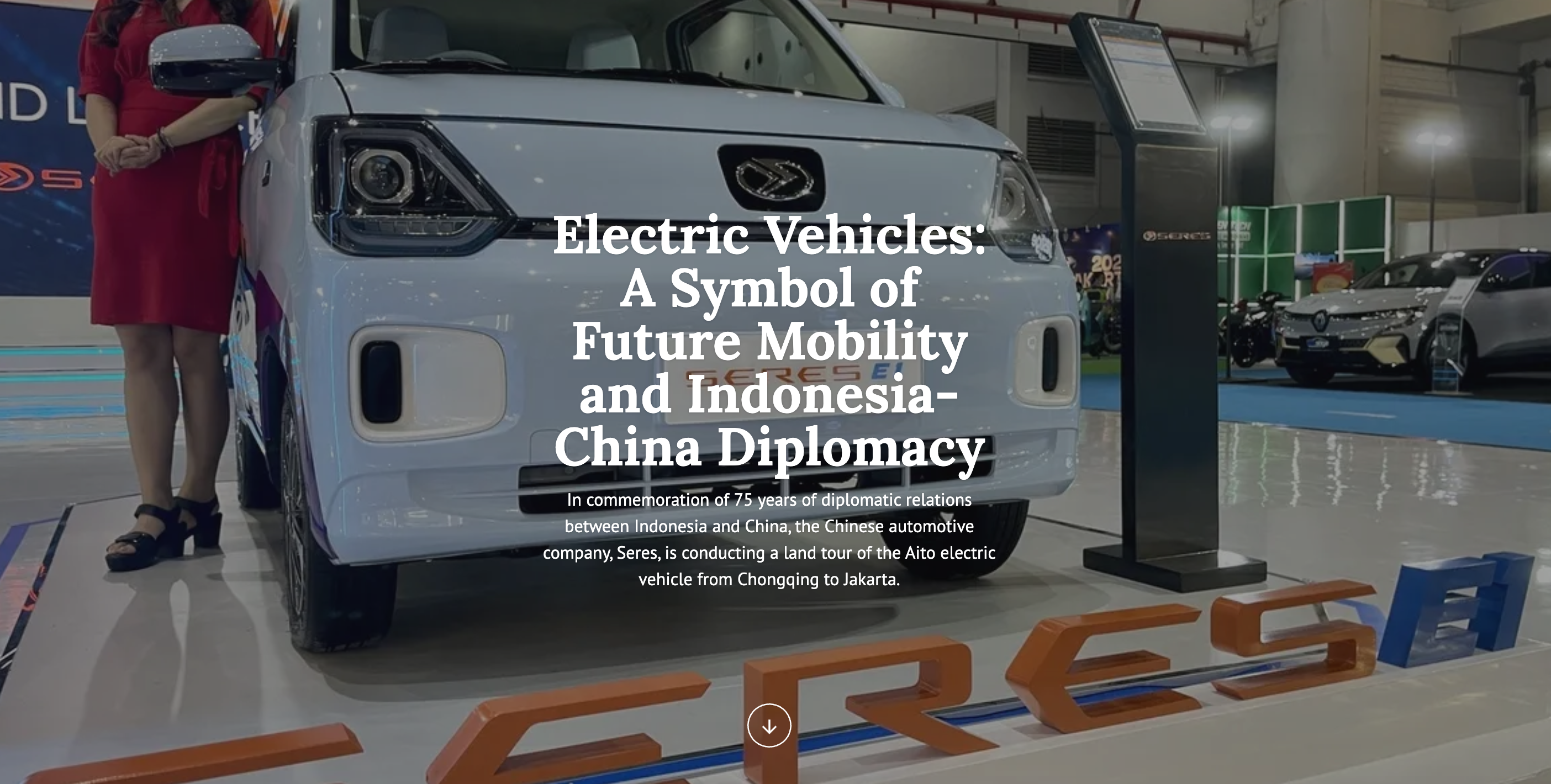
"The ASEAN-GCC-China Summit and Macron’s Southeast Asia tour were more than symbolic — they marked a strategic inflection point. For ASEAN, the events crystallized its transformation from a reactive bloc to a proactive actor capable of managing complex relationships. For China, the meetings highlighted opportunities and constraints: Southeast Asia and the Gulf offer pathways to offset US headwinds, but only if Beijing can offer credible assurances of mutual benefit and political respect."
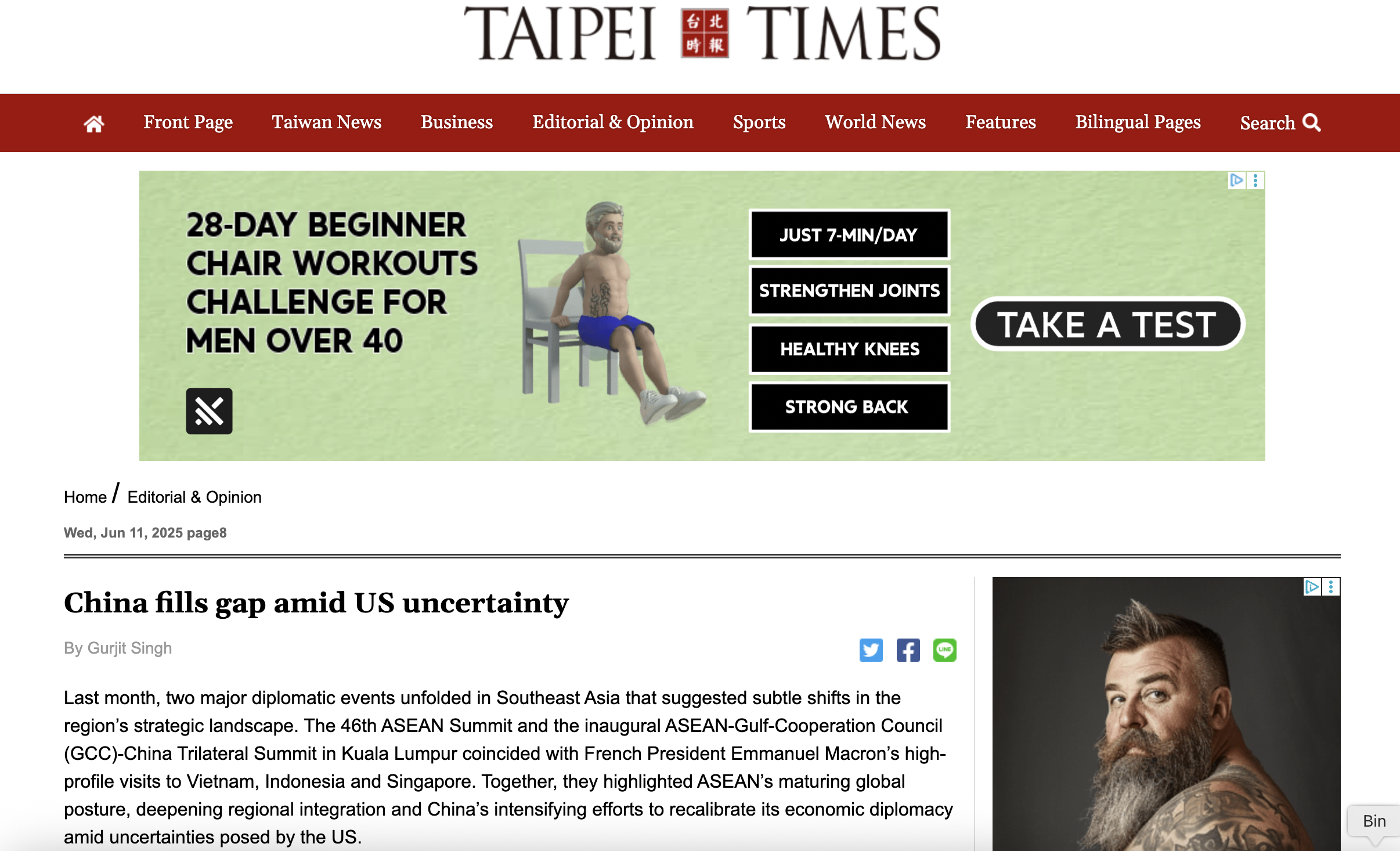
“The application and award of exploration rights to US companies in the West Philippine Sea will be facilitated… Allowing itself to be bullied, the administration should prepare for increased demands for bigger concessions from the US government.”

"Brazil is turning its eyes so resolutely to China because it sees it not only as a financing source, but also as a partner willing to invest in training technology talents, establishing local production chains and developing innovative financing models," Scliar said.
China's pragmatic approach of straightforward cooperation without political or fiscal conditions gives Brazil the autonomy to set its priorities in major initiatives, such as the New Growth Acceleration Program, the Ecological Transformation Plan, and New Industry Brazil, he said.
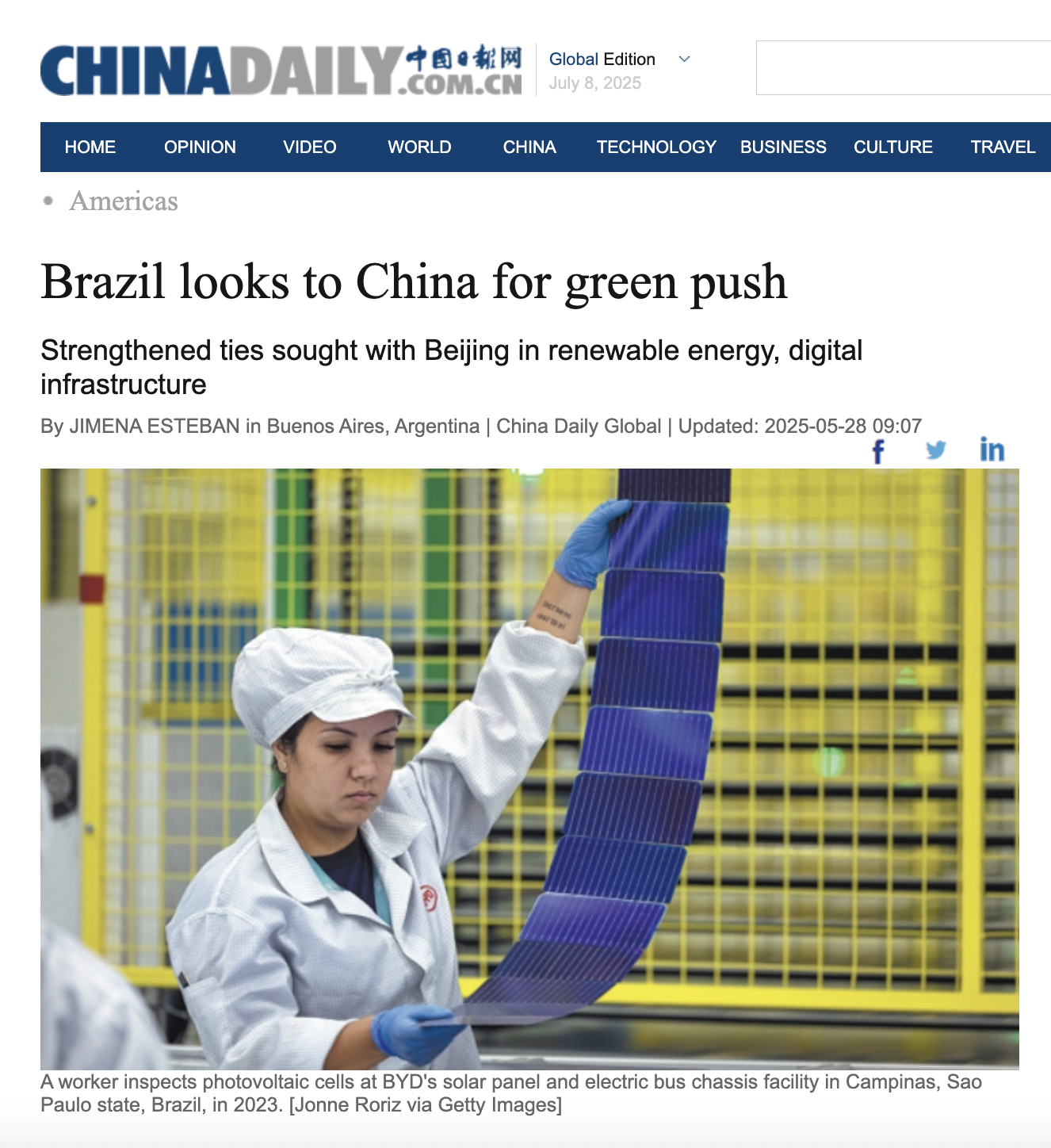
"Solar didn't cause the grid's collapse, intead it was the response. What Pakistan is doing out of urgency, others will pursue as a stategic choice."
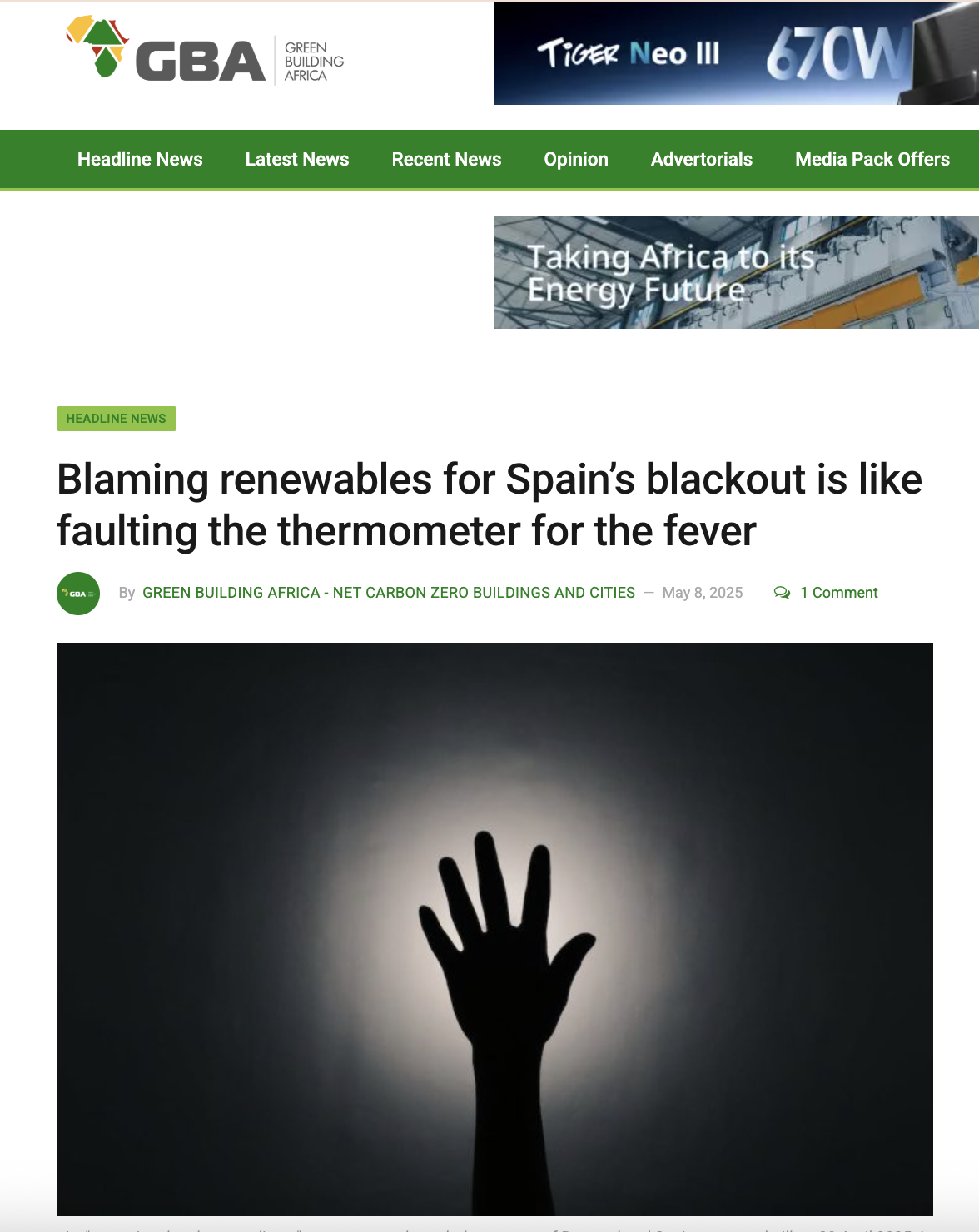
"India's strategic energy realignment within BRICS signifies a profound move towards economic autonomy, not merely a simple shift. Through these alliances, India actively reduces price volatility, ensures stable, extended-term energy resources, and cultivates an energy sector that reflects both its developmental goals and its strategic position in global politics."
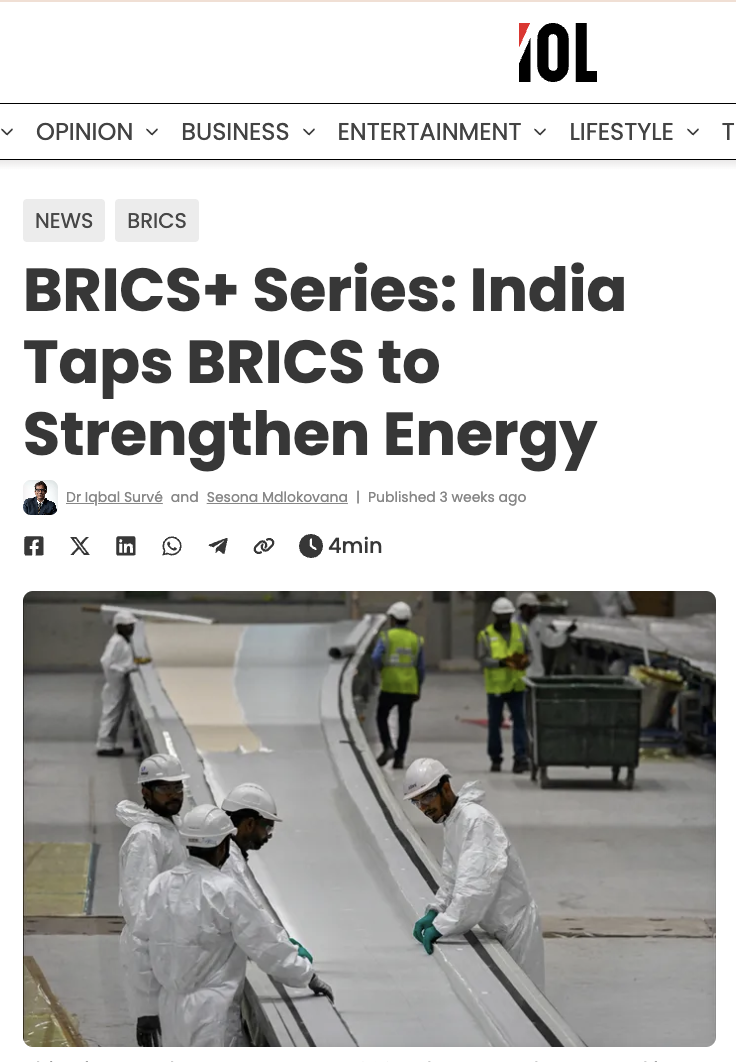
Director of DevTransform, African-based and African-led development organisation
"This analysis makes clear why COP30 must deliver debt cancellation and a new wave of grant-based climate finance... Without just international support, African countries will continue to be forced to face impossible trade-offs between protecting their people from the impacts of the climate crisis and providing essential services like healthcare, schools and roads.”
